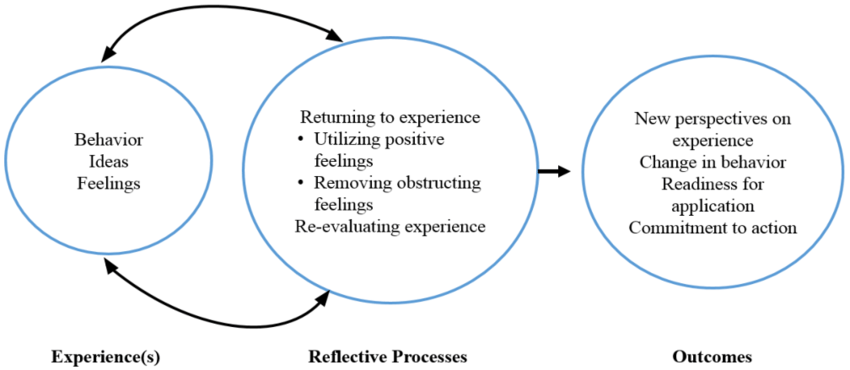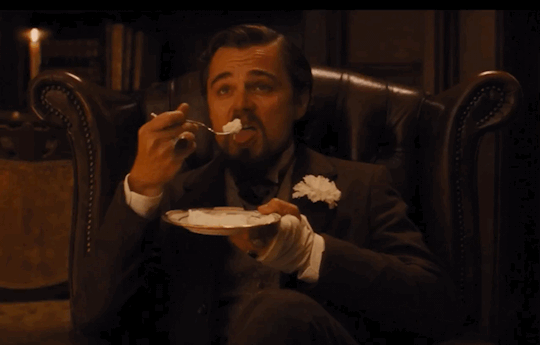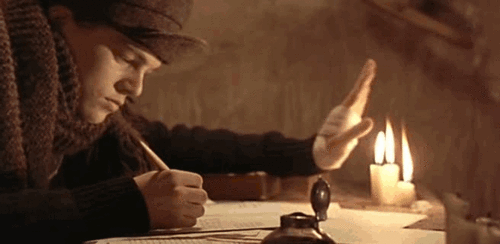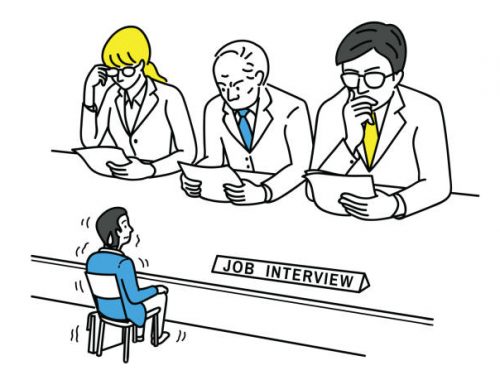The Interview: Inside Out
‘If you stop to think about it, all you are doing is sitting in front of people who work for a firm, who wish you no harm and want to see you succeed’ [1]. Well, what about in front of your classmates that have known you for three years, that know that you have no idea what you are doing, and who you are going to see the next day? A bit awkward and pointless I thought at first. But then when I realized that I had to showcase my experiences, my achievements, and personal qualities to my peers, that is when the anxiety and stress really started to creep in. I personally don’t have much experience with interviews, or at least getting interviewed for a role within the film industry. Thus, I tried to look for a job vacancy where I could really see myself working in the future. I chose a job description as a 1st AD in a long running drama series filming in Leeds.

For this second blog post, I will be using Boud’s Model of Reflection, to reflect on my experience before, during, and after the simulated interview.

Experience

Prior to knowing how the interview was going to be structured and what was the procedure, I read up on what the post entailed and what key role criteria and responsibilities they were looking for and it seemed easy to prepare for it. I assumed that by using the same keywords and phrases used on my CV, it would be a piece of cake.
However, all that confidence went down the drain the moment that I saw the first question of the document given by the lecturer. ‘Tell us about yourself’. Was this therapy? No, thanks.
To analyze yourself objectively is a very difficult task that I am not very good at. Besides I do not overshare my life that easily, so I felt very trapped for a second. Although, I was aware that I would remain very quiet in the interview if I did not come up with answers containing different examples in advance.

And so that is what I did, I grabbed my notepad and pen and wrote down answers to each and every one of the questions. Some of these were easy to provide a suitable answer as my experiences and skills related to my chosen role. After all, ‘understanding your assets and risks in relation to the job and preparing yourself mentally’ [2] was part of my personal preparation. Once that was done, I memorized them by heart which gave me a sense of confidence and reassurance that the simulated interview was going to be successful.
On the day, I noticed that the situation was more casual than I expected, so I felt very relaxed the moment I sat down in front of my peers. This cleared my head and I remembered that I have mannerisms which sometimes ‘get in the way’ [3] . So I crossed my legs to stop the twitch of my leg, opened my arms, made eye contact with each one, and gave it my best.
Reflection
Thanks to my classmates’ feedback and looking back on this experience I know my overall performance during the interview. I feel that my personal preparation worked with every question and I was able to provide appropriate skills and experience relevant to the job position and gave a sense of confidence. Which all of my peers mentioned.
On the other hand, one member of my group caught me off guard as he wanted to ask me a question about a character from the series. This made me laugh at first but at the same time made me realize that I did not do enough research from the show itself. Which in a real interview it would certainty have cost me the job. I reflected on my past experience working in the Belfast Film Festival, which I jumped right into blindly seeing as when I got the placement their programme was not even out.

Moreover, sometimes when the stress gets ahold of me I begin to forget words. This is mainly pointed out on my own feedback since I knew that in some answers I could have been more eloquent and used other words that I had previously said when I was rehearsing. However, I was glad that none of my peers noticed as they were listening to me and seemed to be interested after all. And at the end I was very satisfied and left with a good impression from the simulated interview.
Outcomes
After writing about the experience itself, the outcomes I gathered are very positive which was the opposite of what I was expecting. In my opinion, preparing for the interview beforehand has been the key to this whole process and gave me the confidence that I needed. I would say that I should have done more research in terms of the show, characters, and plots of every season but I kept my answers interesting and related to the job description enough to make my peers pleased.
This exercise has been very helpful to me, as I now know that talking about my skills and experiences will make a good impression in the future in a real interview. And I won’t be feeling embarrassed about talking about myself and having to showcase them highly.
P.S: Yes, I used only Leo’s gifs to express my emotions for this blog.

References
Yate, Martin. J. Great answer to tough interview questions. 2014. London: Kogan Page. [2]
Rogers, Howard. Writing your CV, Conducting a Successful Interview. 1997. First Edition, Easyway Guides, London. [1]
You May Also Like

Simulated Interrogation
18 February 2022
So You Want To Be A Teacher?
17 February 2022

